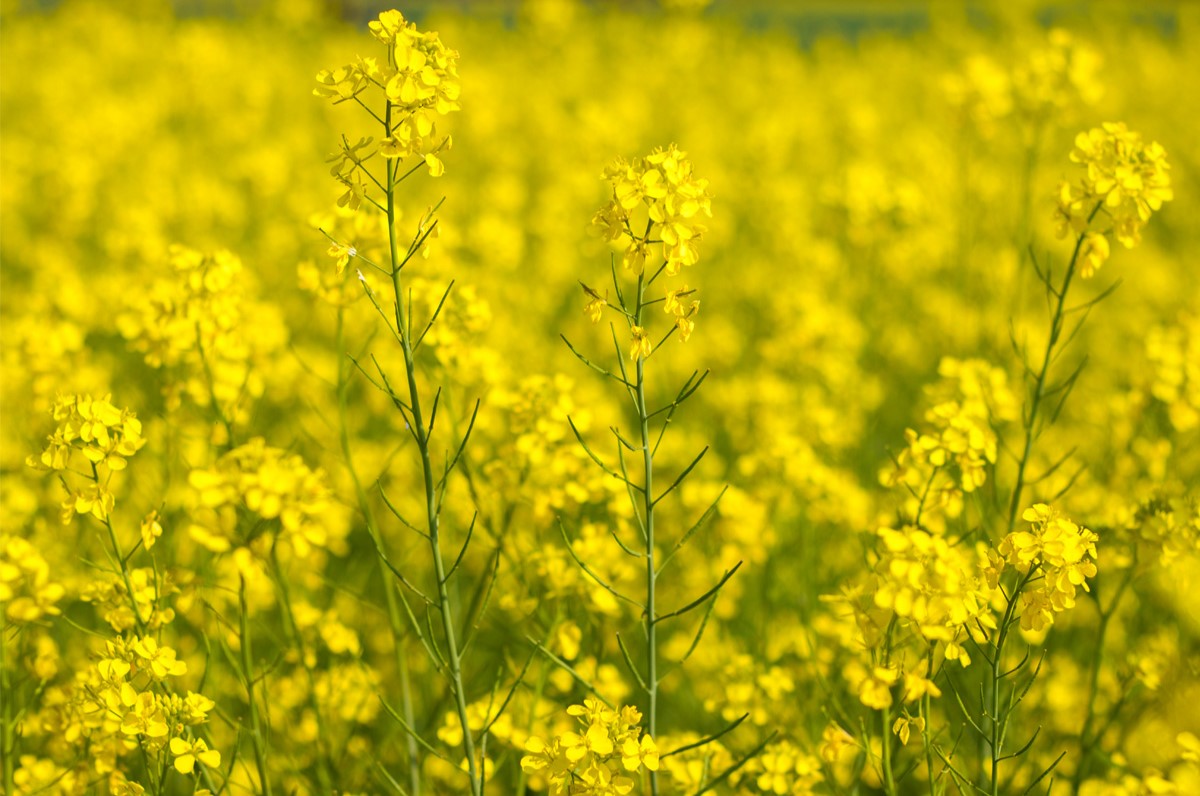
Indian mustard, also known as Brassica juncea, is a versatile plant with a rich history and numerous uses. Originating from the Indian subcontinent, this plant has been cultivated for centuries for its seeds, leaves, and oil. Did you know that Indian mustard is not only a staple in culinary dishes but also plays a significant role in traditional medicine? Its seeds are ground into mustard powder, which is a key ingredient in many spice blends. The leaves, often referred to as mustard greens, are packed with nutrients and used in various recipes. Additionally, Indian mustard oil is prized for its pungent flavor and health benefits. Whether you're a foodie, a gardener, or someone interested in natural remedies, Indian mustard offers something for everyone.
Key Takeaways:
- Indian Mustard is a versatile plant packed with essential nutrients, offering culinary delights and health benefits. From its rich vitamins to its cultural significance, it's truly a remarkable and valuable addition to our lives.
- Not only is Indian Mustard a flavorful addition to dishes, but it also offers numerous health benefits, aids in agriculture, and holds cultural significance in various traditions and practices. It's a powerhouse of goodness in more ways than one!
What is Indian Mustard?
Indian mustard, also known as Brassica juncea, is a versatile plant used in various cuisines and traditional medicines. This plant is not just a culinary delight but also a powerhouse of nutrients and health benefits. Let's dive into some fascinating facts about Indian mustard.
Nutritional Benefits of Indian Mustard
Indian mustard is packed with essential nutrients that contribute to overall health. Here are some key nutritional benefits:
- Rich in Vitamins: Indian mustard leaves are loaded with vitamins A, C, and K, which are vital for maintaining good vision, immune function, and blood clotting.
- High in Minerals: This plant is a good source of calcium, magnesium, and potassium, essential for bone health, muscle function, and maintaining electrolyte balance.
- Antioxidant Properties: The seeds and leaves contain antioxidants that help combat oxidative stress and reduce the risk of chronic diseases.
- Low in Calories: Despite being nutrient-dense, Indian mustard is low in calories, making it an excellent addition to weight-loss diets.
Culinary Uses of Indian Mustard
Indian mustard is a staple in many kitchens around the world. Its seeds, leaves, and oil are used in various dishes. Here are some culinary uses:
- Mustard Seeds: These tiny seeds are often used as a spice in Indian, Chinese, and African cuisines. They add a pungent flavor to dishes.
- Mustard Oil: Extracted from the seeds, mustard oil is used for cooking and as a condiment. It has a strong, spicy flavor.
- Mustard Greens: The leaves are used in salads, soups, and stir-fries. They have a slightly peppery taste.
- Pickling: Mustard seeds are commonly used in pickling recipes, adding a tangy flavor to preserved vegetables.
Health Benefits of Indian Mustard
Beyond its nutritional value, Indian mustard offers several health benefits. Here are some notable ones:
- Anti-inflammatory: Compounds in mustard seeds have anti-inflammatory properties that can help reduce inflammation and pain.
- Digestive Aid: Mustard seeds stimulate the production of digestive juices, aiding in better digestion.
- Heart Health: The omega-3 fatty acids in mustard oil can help lower cholesterol levels and reduce the risk of heart disease.
- Cancer Prevention: Some studies suggest that the glucosinolates in mustard may have cancer-preventive properties.
Agricultural Importance of Indian Mustard
Indian mustard is not just beneficial for health but also plays a significant role in agriculture. Here are some agricultural facts:
- Soil Health: Mustard plants can improve soil health by adding organic matter and nutrients back into the soil.
- Pest Control: Mustard plants can act as a natural pesticide, deterring pests and reducing the need for chemical pesticides.
- Crop Rotation: Farmers often use mustard in crop rotation to break pest and disease cycles, improving overall crop yield.
- Biofuel: Mustard oil can be used as a biofuel, providing an eco-friendly alternative to fossil fuels.
Cultural Significance of Indian Mustard
Indian mustard holds cultural importance in various traditions and practices. Here are some cultural aspects:
- Traditional Medicine: In Ayurveda, mustard seeds and oil are used to treat various ailments, including respiratory issues and skin conditions.
- Religious Rituals: Mustard seeds are often used in religious rituals and ceremonies in India.
- Symbolism: Mustard seeds symbolize faith and growth in many cultures, often mentioned in religious texts and folklore.
- Festivals: During certain festivals, mustard oil is used in lamps and for cooking special dishes, highlighting its cultural significance.
Indian mustard is truly a remarkable plant with a rich history, diverse uses, and numerous benefits.
The Final Scoop on Indian Mustard
Indian mustard isn't just a kitchen staple; it's a powerhouse of benefits. From its nutritional value to its medicinal properties, this humble plant packs a punch. Rich in vitamins and minerals, it supports overall health. Its antioxidant and anti-inflammatory properties can help combat various ailments.
Mustard oil is widely used in cooking and traditional medicine. The seeds, leaves, and oil all have unique uses, making Indian mustard incredibly versatile. Whether you're looking to spice up your meals or boost your health, this plant has got you covered.
Understanding these facts can help you appreciate Indian mustard more. So next time you see mustard seeds or oil, remember the myriad benefits they offer. Embrace this simple yet powerful ingredient in your daily life.
Frequently Asked Questions
Was this page helpful?
Our commitment to delivering trustworthy and engaging content is at the heart of what we do. Each fact on our site is contributed by real users like you, bringing a wealth of diverse insights and information. To ensure the highest standards of accuracy and reliability, our dedicated editors meticulously review each submission. This process guarantees that the facts we share are not only fascinating but also credible. Trust in our commitment to quality and authenticity as you explore and learn with us.


